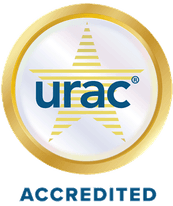Unraveling PBM Complexity: Maximum Allowable Cost (MAC) Lists
Written by
SmithRx
Mar 5, 2024
In the labyrinth of pharmaceutical pricing, Maximum Allowable Cost (MAC) lists serve as tools for controlling costs while ensuring quality care. In simple terms, a MAC list is like a price guide used by pharmacy benefit managers (PBMs) to decide how much they'll pay for generic drugs. It sets the highest price they'll reimburse pharmacies for these medications. The idea is to encourage pharmacies to buy cheaper versions of the same drug.
However, within this system lies a potential pitfall – MAC list arbitrage. This practice occurs when PBMs take advantage of price differences, which can disrupt markets and make prescription medications more expensive for groups and individuals. In this piece, we'll break down what MAC list arbitrage is all about and how it affects budgets and healthcare costs.
Defining Maximum Allowable Cost (MAC) List Arbitrage
MAC list arbitrage – yet another pricing game – occurs when PBMs negotiate prices with pharmacies based on averages, which means they can pay different prices for the same drug depending on who's buying it. So, a drug might cost more or less depending on which client is getting it, even if it's from the same pharmacy on the same day. This allows PBMs to adjust prices to their advantage, often making their clients pay more for their prescriptions than they should.
A Delicious Analogy: MAC List Arbitrage as Clam Chowder
Picture yourself at lunch with friends when the server announces the daily special: a hearty clam chowder. You inquire about the price and are pleasantly surprised when the server quotes you $15 for a bowl. However, when your friend expresses interest in the chowder as well, the server quotes them a significantly higher price of $35.
In this scenario, the restaurant, much like a PBM in the healthcare system, sets variable prices for the same product. This practice, akin to MAC list arbitrage, involves pharmacies being reimbursed different amounts by PBMs for dispensing identical drugs based on various factors such as contractual agreements, volume discounts, or negotiated rates. Just as the restaurant charges different prices to different customers for the same dish, pharmacies may exploit pricing discrepancies across MAC lists to procure drugs at lower costs and bill them at higher rates, ultimately resulting in increased costs for payer groups and members.
The Impact of MAC List Arbitrage on Budgets
MAC list arbitrage can have several impacts on the market, groups, and members, including:
Increased Employer Costs: The manipulation of pricing discrepancies directly affects payer groups by inflating prescription drug costs. This places significant strain on group budgets and financial sustainability, as payer organizations struggle to cope with escalating healthcare expenditures.
Impact on Member Expenses: Members bear the brunt of PBMs' arbitrage practices through elevated healthcare expenses. As PBMs drive up drug costs, members may face higher copayments, coinsurance rates, or premium adjustments, exacerbating financial burdens on individuals and households.
Sustained Access Imbalances: Disparities in drug prices limit availability of essential medications, affecting patient care and exacerbating healthcare access inequality.
Generic Effective Rate: GER’s are a contractual rate that ensures pharmacies receive a percentage of the wholesale price for generic medications over a period of time. While the main goal of GER’s is to make sure pharmacies are fairly reimbursed, some have said that they bring financial harm & closures to them instead.
Leading the Charge Against MAC List Arbitrage with Transparent Pricing Strategies
We at SmithRx understand the critical importance of ensuring that pricing mechanisms such as MAC lists serve their intended purpose of controlling costs while maintaining quality care for our members. As such, we are committed to implementing robust strategies to mitigate risk.
One of our key tactics is maintaining a single MAC list for each pharmacy in our network. This approach ensures uniformity in pricing for all our clients, making it impossible for MAC list arbitrage to occur between clients. By doing so, we guarantee that every client receives the same fair deal, directly addressing the issue of unequal access and contributing to a more equitable healthcare environment.
When you partner with a PBM like us, you're taking a proactive step towards eliminating MAC list arbitrage altogether. We believe in keeping our clients fully informed about every aspect of their pharmacy benefits, ensuring that there are no hidden costs or markups. With our transparent and 100% pass-through pricing model, you can rest assured that every dollar saved through negotiations goes directly back to you, the client, without any middlemen skimming off the top.
See how much an honest, 100% pass-through PBM can save you: Request a repricing analysis.

Written by
SmithRx
SmithRx is the #1 Modern PBM, relentlessly focused on eliminating the conflicts and complexity of legacy pharmacy benefits. Built on radical transparency and fiduciary alignment, we empower employers to take control of their pharmacy spend and experience with our 100% pass-through model.





